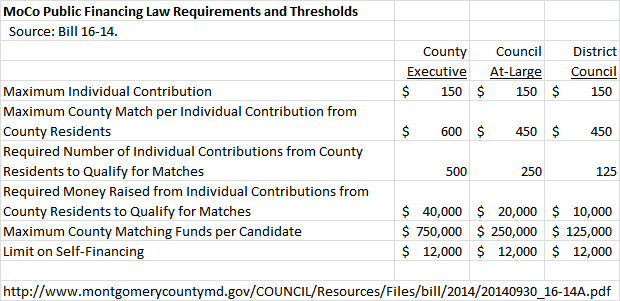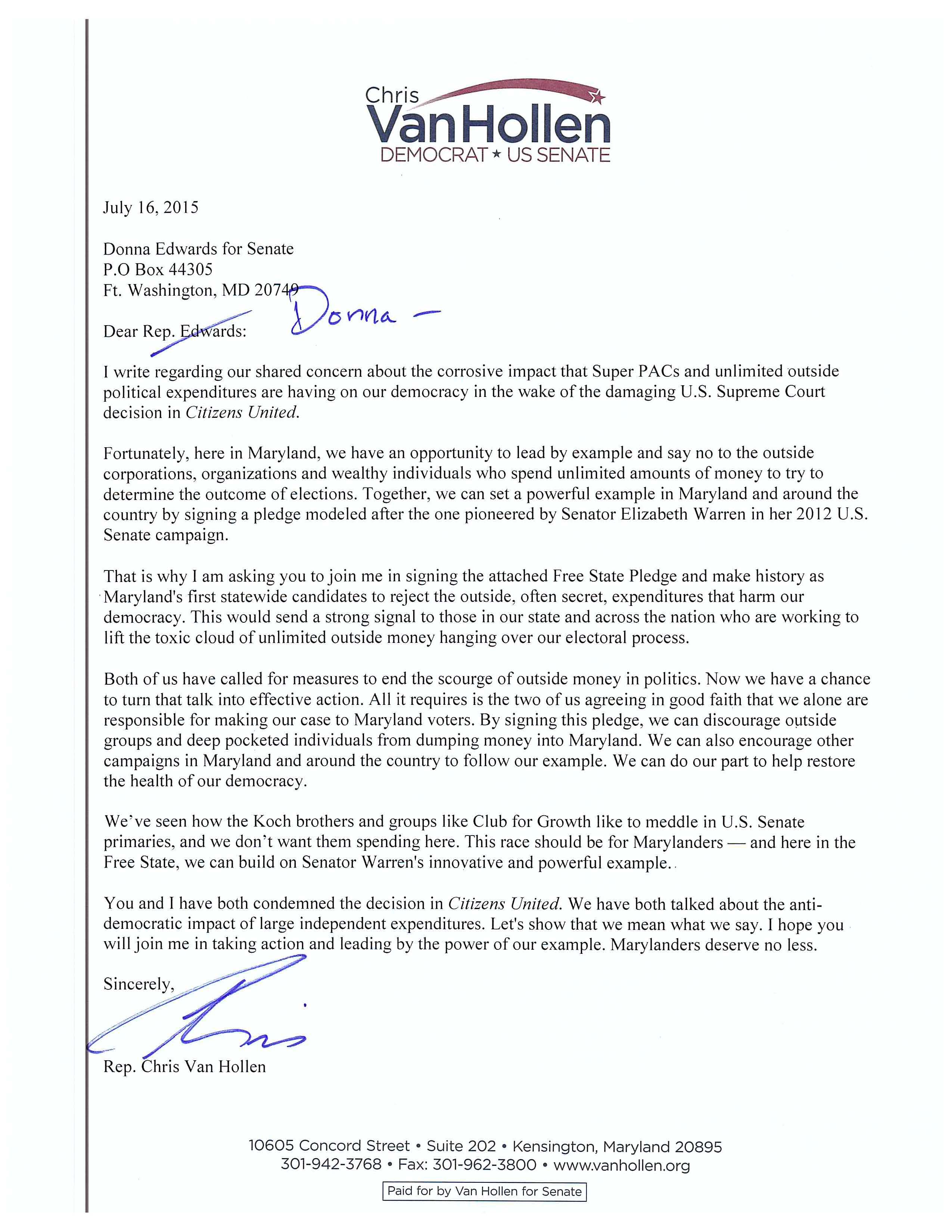By Adam Pagnucco.
As MCM and Seventh State have reported, MoCo political heckler Robin Ficker is running for County Executive. That’s not shocking – Ficker has a long history of running for office and almost always losing. What’s new is that Ficker is planning on acquiring a new source of campaign funds.
You, the public.
Ficker’s campaign website explicitly refers to the county’s new public financing system, under which the county matches campaign contributions made by individual residents (but not PACs, corporate entities or non-residents). The system is opt-in; candidates can use the traditional financing system if they wish. Ficker created a public financing account to run for Executive on February 8. But that doesn’t mean he will necessarily get public funds.
Ficker’s campaign website home page.
The county’s system does not distribute taxpayer money to everyone who participates. Instead, it sets up a number of thresholds candidates must reach before they are eligible for public matching funds. Under the law, a candidate for Executive must receive at least 500 contributions of $150 or less from county residents totaling at least $40,000 before he or she is eligible for public funds. The candidate cannot accept money from PACs or businesses and cannot take individual contributions of higher amounts. Once eligible, the candidate can collect up to $600 in taxpayer funds for each $150 contributed by an individual. Lesser matching amounts apply to smaller contributions on a sliding scale. Lower thresholds and different match levels apply to those running for County Council at-large and district seats.

Could Ficker get public money? Ficker has used two campaign accounts over the last decade, the Robin Ficker for Homeowners Committee (which he used in two runs for County Council) and the Fickers for 15 Slate (which he used to run for the General Assembly along with his son in 2014). The two accounts together raised $262,762. Of that amount, Ficker self-financed $259,108, or 99% of his take. A total of 33 individuals other than Ficker gave to the two accounts. So Ficker has a long ways to go to get public money. However, he does plan to use his term limits petition information to raise contributions. Ficker gathered 17,649 signatures. If just three percent of those folks contribute $150 or less to his campaign, Ficker will qualify for public matching funds.
And so here is the cost of public campaign financing. If taxpayers are to fund the campaigns of candidates they might support, they may also have to fund the campaigns of those they do not. Even the clown prince of political hecklers. Even Robin Ficker.





